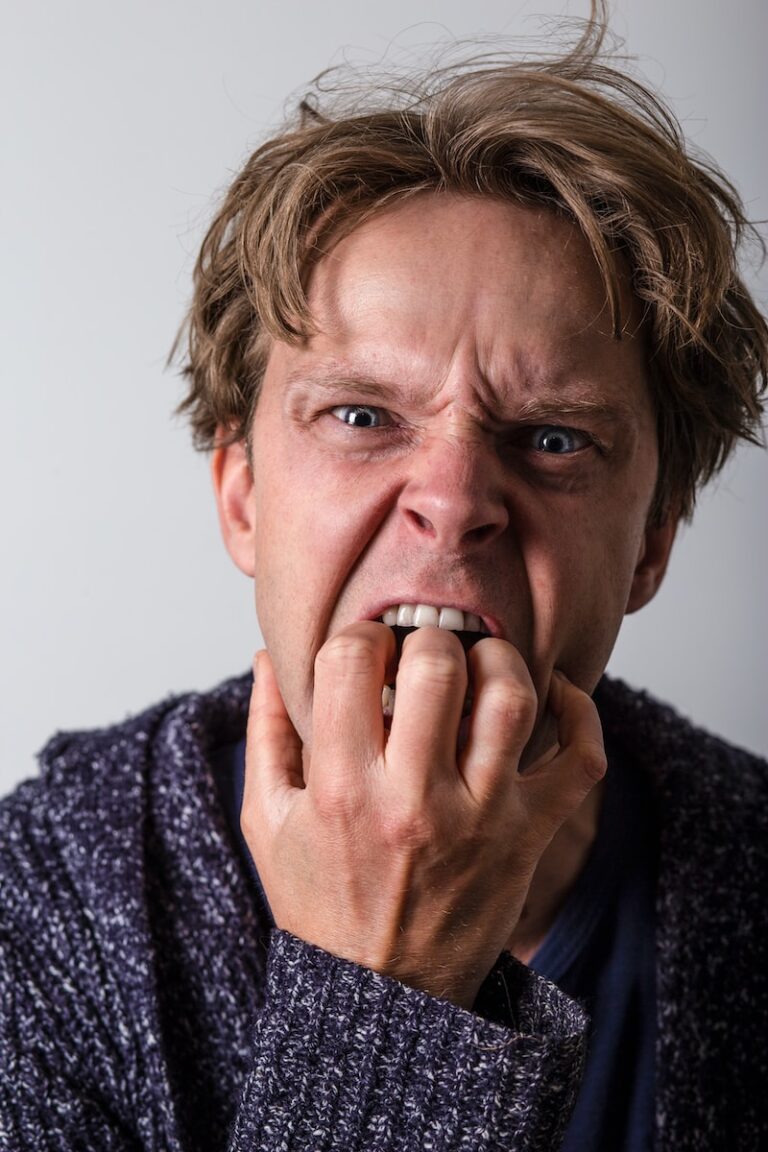Introduction: Understanding the Aftermath of Rejection
Rejection is something that everyone experiences at some point in their lives. Whether it’s being turned down for a job, getting dumped by a romantic partner, or failing to achieve a personal goal, rejection can be a painful and difficult experience.
It can leave us feeling hurt, angry, and unsure of ourselves. Unfortunately, many of us respond to rejection in unhealthy ways.
We may blame ourselves for the rejection, seek revenge on the person who rejected us, or isolate ourselves from others. These patterns of behavior not only make the experience more difficult but can have long-term negative impacts on our mental health.
The Importance of Recognizing and Avoiding Unhealthy Patterns of Behavior
Recognizing and avoiding unhealthy patterns of behavior after rejection is essential for our emotional well-being. When we engage in these behaviors, we reinforce negative beliefs about ourselves and our worthiness as individuals. Over time, these beliefs can become deeply ingrained and affect our ability to form healthy relationships with others.
Furthermore, engaging in unhealthy patterns of behavior after rejection can prevent us from learning from the experience. If we blame someone else for our rejection or seek revenge on them, we may miss an opportunity to reflect on what we could have done differently or how we could grow as individuals.
Therefore, recognizing and avoiding unhealthy patterns of behavior after rejection is crucial for moving forward in a healthy and positive way. By doing so, we are able to learn from our experiences and develop stronger relationships with ourselves and others.
Unhealthy Patterns of Behavior After Rejection
Rejection can be a tough pill to swallow, and it’s natural to feel hurt or upset. However, some people may respond in unhealthy ways that can exacerbate the situation and cause even more emotional pain.
Recognizing these patterns of behavior is the first step in avoiding them. One common pattern is self-blame.
After being rejected, many people tend to internalize their feelings and believe that they are somehow at fault for what happened. They may find themselves replaying the scenario over and over in their minds, wondering what they could have done differently or if there was something inherently wrong with them that caused the rejection.
This type of thinking can quickly spiral into a cycle of negative self-talk that damages self-esteem and makes it difficult to move on. Another unhealthy pattern is seeking revenge.
When someone feels wronged, it’s understandable to want some kind of retribution or justice. However, seeking revenge often only leads to more conflict and negativity.
It’s important to remember that hurting someone else will not heal your own wounds – it will only create new ones. Additionally, focusing on revenge takes energy away from healing and moving forward in a positive way.
Isolation is yet another common pattern after rejection occurs. Some people may withdraw from friends and family because they feel embarrassed or ashamed about what happened.
Others may simply retreat into themselves as a way of avoiding further emotional pain. While taking time for oneself can be healthy in moderation, too much isolation can lead to loneliness and depression.
To illustrate these patterns further: imagine you’ve been rejected by a romantic interest you were really excited about getting to know better (self-blame). You might start questioning everything you said during your interactions with them – did you come on too strong?
Not strong enough? Did you say something weird?
Perhaps this spirals into thinking there must be something fundamentally unattractive or unlikeable about you, or that you’re unlovable and destined to always be alone. This constant negative self-talk can become an unhealthy pattern that’s tough to break out of.
Alternatively, let’s say you decide to seek revenge (even if it’s just mentally). You might start stalking their social media or talking about them behind their back.
Maybe you even try to make them jealous by posting pictures with other people. While it might feel satisfying in the moment, ultimately it will only cause more drama and heartache.
Overall, recognizing these patterns of behavior is crucial to avoid causing further pain in yourself and others. In the next section, we’ll talk more about how to identify when these patterns are happening in your own life.
Recognizing Unhealthy Patterns of Behavior After Rejection
Getting rejected can be a tough pill to swallow. It can be easy to fall into unhealthy patterns of behavior and not even realize it.
Recognizing these patterns is crucial in order to take steps towards avoiding them and moving forward in a healthy way. There are various signs that indicate you are engaging in an unhealthy pattern of behavior after rejection.
It is important to pay attention to these signs so that you can change your behavior before it becomes more destructive. One common sign is constant negative self-talk.
When someone experiences rejection, they might blame themselves for the outcome, even if it wasn’t entirely their fault. This negative self-talk can turn into a vicious cycle, leading them down a rabbit hole of self-doubt and low self-esteem.
Another sign is an inability to move on from the event or experience. If someone has difficulty letting go or moving on from the rejection, this could be problematic for their emotional well-being as well as their ability to form new relationships or pursue new opportunities.
The Importance of Being Honest with Yourself about Your Behavior
In order to recognize unhealthy patterns of behavior after rejection, it is important to be honest with yourself about your actions and thoughts. This includes being aware of any negative emotions you might be experiencing as a result of the rejection and acknowledging how you are reacting towards others or yourself because of those emotions.
Being honest with yourself also means taking responsibility for your actions. If you notice that you are engaging in an unhealthy pattern of behavior after rejection, don’t brush it off or try to justify it – take ownership and actively work towards changing your behavior.
Remember that recognizing unhealthy patterns of behavior after rejection doesn’t mean that there’s something inherently wrong with you – everyone goes through difficult experiences at some point in their lives, and everyone reacts differently to them. The key is to be self-aware and willing to take steps towards positive change.
Avoiding Unhealthy Patterns of Behavior After Rejection
Tips for avoiding unhealthy patterns of behavior after rejection
After experiencing rejection, it’s essential to take care of yourself. Practicing self-care activities such as exercising regularly, eating healthy meals, and getting enough sleep can help you feel better both physically and emotionally.
When you take care of your body, you’re also taking care of your mind. Another important tip is to seek support from friends and family.
It’s okay to lean on those closest to you during difficult times. Reach out to a friend who makes you laugh or a family member who is always there with open arms for comfort.
Talking with someone can make all the difference when dealing with rejection. Additionally, learn new things or take up hobbies that bring you joy and happiness.
Check out local dance classes or art lessons; maybe try cooking or baking something new! Doing so can distract your mind from negative thoughts and let in some positive energy.
Strategies for reframing your thoughts and emotions in a more positive way
When dealing with rejection, it’s easy to get stuck in a cycle of negative thoughts about yourself and the situation. However, it’s essential to reframe these thoughts into more positive ones.
One way is to practice gratitude by writing down things that make you happy every day before going to bed. Another strategy is cognitive restructuring – questioning negative thought patterns by gathering evidence against them or looking for more balanced perspectives instead of catastrophizing the situation.
Seeking therapy or counseling has also been proven effective in helping individuals cope with rejection by providing tools such as mindfulness techniques, problem-solving skills, and social support systems tailored towards individual coping styles. Avoiding unhealthy patterns of behavior after experiencing rejection takes effort; practicing self-care activities like exercising regularly eating healthy meals following good sleep hygiene habits are essential components that will help you feel better both physically and emotionally.
Seeking support from friends and family and practicing gratitude are also great ways to cope with rejection. Remember, everyone experiences rejection at some point in their lives, but it’s how you handle it that makes all the difference.
Conclusion:
Breaking the Cycle for a Happier Life
Recognizing and avoiding unhealthy patterns of behavior after rejection is crucial for maintaining positive mental health and overall wellbeing. Engaging in self-blame, seeking revenge, or isolating oneself from others can lead to prolonged feelings of negativity, self-doubt, and even depression.
If left unchecked, these behaviors can become ingrained habits that shape our overall approach to life. It’s important to recognize that we all experience rejection at some point in our lives.
It’s a natural part of the human experience. However, it’s how we respond to rejection that ultimately shapes our future experiences and relationships.
If we learn to recognize the signs of unhealthy behavior patterns after rejection and take steps to avoid them, we can break the cycle of negative thinking and ultimately create a happier life for ourselves. If you find yourself struggling with these issues or unable to break away from unhealthy patterns on your own, seek help from a qualified mental health professional.
Remember that asking for help is not a sign of weakness; it takes strength and courage to admit when we need assistance in overcoming obstacles. With time and effort, you can learn new ways of coping with rejection and emerge stronger than ever before!






